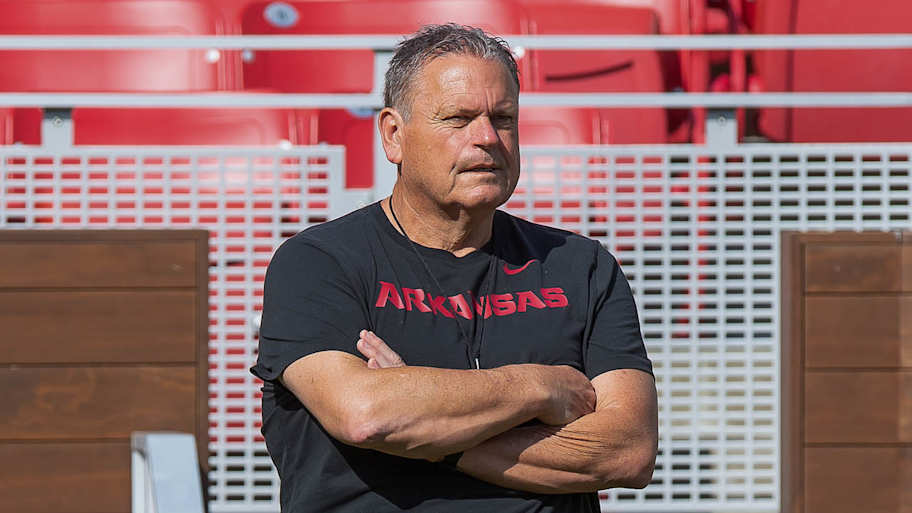Arkansas' financial equality hopes dashed by shift

Arkansas' Hope for Financial Parity Faces New Challenges
Less than a week ago, Arkansas head coach Sam Pittman expressed optimism that the landscape of college sports is becoming more balanced. This sentiment comes after the House v. NCAA settlement was approved, allowing schools to allocate $20.5 million directly toward supporting athletes. Pittman believes this change will level the playing field for all programs.
"We're back on even keel with everybody," Pittman stated. "Which we weren't [before revenue sharing]. When we were even, we went 4-20 to top 20 in two years. I think the program has a chance to get back up to around those nine-plus wins than where we were before just simply because we have the finances to back that."
Pittman also highlighted the financial challenges his team has faced since the start of 2023, particularly when compared to other SEC teams. He pointed to the lack of support for the Arkansas Edge, the Hogs NIL collective, as one of the main roadblocks to success. Since his nine-win season in 2021, Pittman has compiled an 18-20 record over the past three seasons.
"If I was going to make an excuse it would be financially is why we haven't done quite as well as where we were projected my first two years," Pittman said. "Now with it being even, I look out that the Razorbacks are coming on."
However, the parity that Pittman envisioned may be short-lived. A recent report by Yahoo Sports’ Ross Dellenger revealed that the College Sports Commission's new enforcement arm, CSC GO, is changing its approach to handling collectives. Just two weeks ago, the clearinghouse denied dozens of NIL deals, stating that collectives must meet a higher threshold to qualify as valid business purposes.
This shift could significantly impact the role of collectives in college sports. Moving forward, collectives will be treated similarly to other businesses when evaluating the legitimacy of third-party NIL deals. This development sets the stage for collectives to maintain their influence over the sport.
Teams with strong collectives are likely to benefit from these changes. However, Arkansas is still searching for a permanent executive director for its NIL collective after Kyle May left the position in February to take on a new role as senior director of corporate partnerships at the Walmart AMP.
May held the position for less than eight months, replacing Chris Bauer. Since then, Marcus Madlock has been serving as the interim director for over five months while maintaining his role at Blueprint Sports as vice president of client partnerships. Blueprint Sports is the third-party arm responsible for managing the collective.
Arkansas has taken steps to raise funds for NIL through the Razorback Raffle, a 50/50 drawing. The first two drawings raised approximately $237,000 after winners were paid. However, it remains unclear whether the collective received any of those funds.
Under the current legislation, the money can be used to fund the operations of the athletic department, not just the NIL collective. This flexibility provides additional opportunities for the program to grow and improve.
As the college sports landscape continues to evolve, the impact of these changes on Arkansas and other programs remains to be seen. While the promise of financial parity offers hope, the shifting rules surrounding NIL deals and collectives present new challenges for teams striving to compete at the highest level.
Post a Comment for "Arkansas' financial equality hopes dashed by shift"
Post a Comment